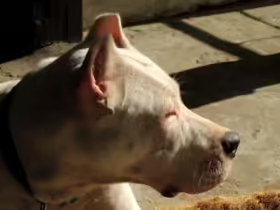Cats are masters at hiding discomfort and illness, a trait inherited from their wild ancestors. However, as a responsible pet owner, it’s crucial to recognize the subtle signs that your cat may be unwell. Identifying these signs early and seeking veterinary care promptly can prevent serious health issues and improve your cat’s chances of a swift recovery. Here are the top 10 signs of illness in cats and guidance on when to seek veterinary care.
1. Changes in Appetite
a. Loss of Appetite:
- Symptoms: If your cat suddenly refuses to eat or shows a significant decrease in food intake, it may be a sign of illness.
- Potential Causes: This could indicate dental issues, gastrointestinal problems, or more serious conditions like kidney disease or cancer.
- Action: Monitor your cat’s eating habits and consult your vet if the loss of appetite lasts more than 24 hours.
b. Increased Appetite:
- Symptoms: An increase in appetite, especially if accompanied by weight loss, could be a sign of diabetes or hyperthyroidism.
- Action: If you notice excessive hunger, schedule a veterinary check-up to rule out underlying health issues.
2. Changes in Drinking Habits
a. Increased Thirst:
- Symptoms: If your cat drinks more water than usual, it might be experiencing diabetes, kidney disease, or hyperthyroidism.
- Action: Observe your cat’s drinking patterns and consult with your vet if there is a noticeable increase in thirst.
b. Decreased Thirst:
- Symptoms: Reduced water intake can lead to dehydration, which might be a sign of kidney disease or other health problems.
- Action: Ensure your cat has access to fresh water and consult your vet if you notice a decrease in drinking.
3. Changes in Litter Box Habits
a. Frequent Urination:
- Symptoms: Increased urination or inappropriate urination (outside the litter box) may indicate urinary tract infections (UTIs) or diabetes.
- Action: Monitor your cat’s litter box behavior and consult your vet if these changes persist.
b. Difficulty Urinating:
- Symptoms: Straining to urinate, blood in urine, or frequent attempts with little result can be symptoms of a urinary blockage or UTI.
- Action: Seek immediate veterinary care if your cat shows any signs of difficulty urinating, as it can be a medical emergency.
c. Constipation or Diarrhea:
- Symptoms: Changes in bowel movements, such as constipation or diarrhea, can be signs of digestive issues, infections, or more severe conditions like gastrointestinal disease.
- Action: Consult your vet if your cat has persistent changes in bowel movements lasting more than 24 hours.
4. Vomiting and Nausea
a. Occasional Vomiting:
- Symptoms: While occasional vomiting might not be alarming, frequent vomiting can be a sign of gastrointestinal issues, poisoning, or other health concerns.
- Action: Keep track of how often your cat vomits and consult your vet if vomiting is frequent or accompanied by other symptoms.
b. Signs of Nausea:
- Symptoms: Signs of nausea include drooling, lip licking, and refusing food. These can be related to digestive issues or systemic illness.
- Action: If you notice persistent signs of nausea, seek veterinary advice to determine the underlying cause.
5. Changes in Behavior
a. Lethargy:
- Symptoms: A sudden decrease in activity or reluctance to play can indicate illness or pain.
- Action: If your cat is unusually lethargic or sleeps more than usual, consult your vet to evaluate their health.
b. Aggression or Hiding:
- Symptoms: Behavioral changes such as aggression or hiding can be signs of pain or discomfort.
- Action: If your cat is acting out of character, seek veterinary advice to address potential health issues.
6. Changes in Coat and Skin
a. Fur Loss:
- Symptoms: Excessive shedding or bald patches can indicate allergies, parasites, or skin infections.
- Action: Consult your vet if you notice significant changes in your cat’s coat or skin condition.
b. Dull or Patchy Fur:
- Symptoms: A dull coat or patches of missing fur can be signs of nutritional deficiencies, hormonal imbalances, or other health problems.
- Action: If you observe changes in your cat’s coat quality, discuss them with your vet.
7. Difficulty Breathing
a. Rapid Breathing:
- Symptoms: Rapid or labored breathing can be a sign of respiratory issues, heart disease, or stress.
- Action: Seek immediate veterinary care if your cat exhibits signs of difficulty breathing or abnormal respiratory patterns.
b. Coughing or Wheezing:
- Symptoms: Persistent coughing or wheezing can indicate respiratory infections, asthma, or other conditions.
- Action: Consult your vet if your cat shows persistent coughing or wheezing.
8. Eye and Nose Discharge
a. Eye Discharge:
- Symptoms: Discharge from the eyes, redness, or swelling can be signs of eye infections, allergies, or conjunctivitis.
- Action: If your cat has abnormal eye discharge or changes in eye appearance, consult your vet for an evaluation.
b. Nasal Discharge:
- Symptoms: A runny nose, especially if it is persistent and accompanied by other symptoms, can indicate respiratory infections or allergies.
- Action: Seek veterinary care if nasal discharge is ongoing or severe.
9. Weight Changes
a. Unexplained Weight Loss:
- Symptoms: Significant weight loss without a change in diet or exercise can be a sign of serious health issues, including cancer or chronic diseases.
- Action: Consult your vet if you notice unexplained weight loss in your cat.
b. Unexplained Weight Gain:
- Symptoms: Weight gain, especially if accompanied by other symptoms, can indicate metabolic disorders or other health problems.
- Action: Discuss any unexplained weight gain with your vet to determine the underlying cause.
10. Unusual Sounds or Movements
a. Unusual Vocalizations:
- Symptoms: Excessive meowing or crying can be signs of discomfort, pain, or illness.
- Action: If your cat is vocalizing more than usual or exhibiting distress, seek veterinary advice.
b. Uncoordinated Movements:
- Symptoms: Difficulty walking, unsteady movements, or weakness can indicate neurological issues or other health problems.
- Action: Consult your vet if your cat exhibits any signs of coordination problems or weakness.
Conclusion
Recognizing the signs of illness in your cat and seeking timely veterinary care is crucial for maintaining their health and well-being. By being observant and proactive, you can help ensure that any health issues are addressed early, leading to a better outcome and a happier, healthier life for your feline friend. Regular check-ups with your vet and being attentive to changes in behavior or physical condition are key to keeping your cat in optimal health.











Leave a Reply